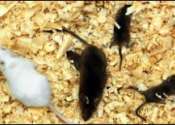Probing the limits to memory
(Medical Xpress)—There is no mystery in the way that computers store information. It is straightforward to determine how much memory they have and what is contained in that memory. Brains don't really have memory in this ...







